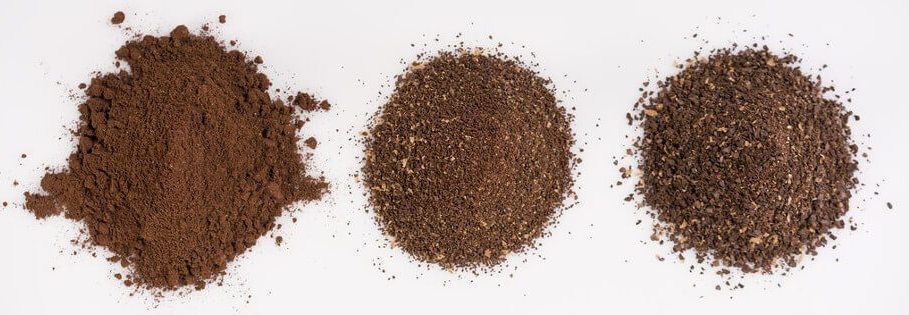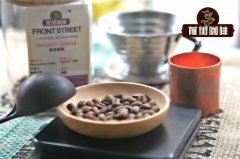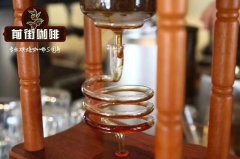How to soak the freshly ground coffee powder? What kind of utensils do you need to brew your coffee at home?

Professional coffee knowledge exchange more coffee bean information please follow the coffee workshop (Wechat official account cafe_style)
We all know that coffee, three-in-one instant coffee in supermarkets and instant coffee powder in powdered or bottled bottles, as well as freshly ground coffee served in cafes and fast food restaurants, are all coffee. But not every kind of coffee will taste good, especially freshly ground coffee. We must master the skills of brewing coffee in order to make delicious coffee. Let's learn it together.
Drink good coffee
Do you make coffee in a pot?
Brewing coffee refers to the extraction of essential aroma and nutrients from coffee powder and does not have to be stewed in a small pot.
In the earliest days, people did not have more utensils to filter the coffee grounds, so they would directly use the pot to make coffee and then drink the coffee liquid on top. Later, in order to avoid eating coffee grounds, people put coffee powder into small cloth bags and then boiled it. Now there are many utensils that can make coffee. It includes coffee machines, hand brewers, French presses, siphon pots and other utensils specially used for extracting coffee.
How to make coffee tastes good?
In fact, we don't care about how many coffee containers there are, what we care about is how to use these coffee containers correctly to make the coffee more delicious!
Limited to space, we will not talk too much about the making techniques of each coffee vessel (for those who are interested, please refer to my previous article for a detailed introduction). Today we will mainly take a look at the commonalities of all the utensils in brewing coffee and how to make the coffee made by them more rich and delicious.
Be sure to pre-invade moisture
If there are conditions for this step, you must do it. Don't say that the instruments you use do not have this function. The method is always more difficult than difficult. Of course, the easiest thing is to operate manually, dripping and bubble-type appliances make it easy for coffee powder to come into full contact with water, while other tools can also be used.
Be sure to pay attention to the matching degree of grinding
Whether a cup of coffee is good or not, in addition to the coffee bean itself and roasting, production is the biggest volatile factor, and the subjectivity is greater. Grinding plays a very important role in production, so it is necessary to match the roughness and fineness of the grinding powder to avoid excessive extraction caused by insufficient extraction or too fine powder.
(drip type utensils, such as hand brewing and dripping coffee machines, are recommended to use medium powder; immersion utensils, such as French presses, etc., are recommended to be too thick; instruments that rely on pressure filtering, such as Italian coffee machines, Ello presses, etc., are recommended to use fine powder.)
The water temperature is exquisite.
For hand-brewed coffee, the water temperature is generally recommended between 82 and 92 degrees, which can be adjusted according to the characteristics of coffee beans.
Quantity and proportion should be appropriate.
Everything must have a dose and proportion, and coffee is no exception. For different utensils, the ratio of powder to water (the ratio of coffee powder to water) is also different, so you should pay attention to adjust it according to the utensils you use. If you don't understand, you can leave a message and I'll give you some advice.
Can I add sugar if it's too bitter?
Why not? Whether it tastes good or not is not something that professionals can comment on. After all, you are the one who drinks it. You think it is too bitter. Why not add sugar or milk to taste?
Remember, professionals only evaluate product attributes and relatively more objective olfactory and taste experiences in a professional context, but their comments don't determine whether you like it or not, so don't worry about what they say, just refer to it. Eat and drink is to satisfy the appetite, do not think so much.
END
Important Notice :
前街咖啡 FrontStreet Coffee has moved to new addredd:
FrontStreet Coffee Address: 315,Donghua East Road,GuangZhou
Tel:020 38364473
- Prev

Can I also beat the coffee foam manually? Is there any skill in beating milk foam manually?
Professional coffee knowledge exchange more coffee bean information Please follow the coffee workshop (Wechat official account cafe_style) those who know about coffee know that the milk bubbles of milk coffee are tiny bubbles formed by the steam of the coffee machine pumping air into the milk cup and wrapping the milk with fat. This is a very important step for milk coffee. Because if the milk foam is not played well, it will affect the taste of the whole cup of milk coffee.
- Next

Do you know how many kinds of coffee there are? A brief introduction to the varieties of coffee
Professional coffee knowledge exchange more coffee bean information Please pay attention to the coffee workshop (Wechat official account cafe_style) how many varieties of coffee, which is probably not understood by many people, especially for those who do not like coffee very much. And for coffee lovers, there should be about three varieties of coffee, because it is such a saying in the coffee industry.
Related
- Beginners will see the "Coffee pull flower" guide!
- What is the difference between ice blog purified milk and ordinary milk coffee?
- Why is the Philippines the largest producer of crops in Liberia?
- For coffee extraction, should the fine powder be retained?
- How does extracted espresso fill pressed powder? How much strength does it take to press the powder?
- How to make jasmine cold extract coffee? Is the jasmine + latte good?
- Will this little toy really make the coffee taste better? How does Lily Drip affect coffee extraction?
- Will the action of slapping the filter cup also affect coffee extraction?
- What's the difference between powder-to-water ratio and powder-to-liquid ratio?
- What is the Ethiopian local species? What does it have to do with Heirloom native species?

